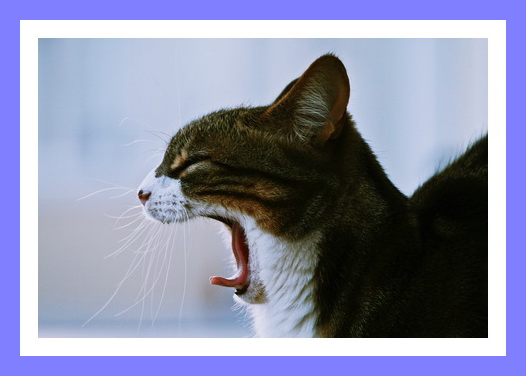The information contained in this sticky is provided for educational purposes only and is not intended to replace veterinary advice. The intention of this sticky is to open doors to understanding about the specific medical condition or topic, allowing for educated and on-going discussion with your vet.
|
|
 |
There are many reasons your cat could need an antibiotic; in conjunction with surgery or for a urinary tract, bacterial or dental infection, to mention a few.
If the
vet offers you a syrup formulation for any medications, it is important to
clarify with the vet the
abx contains no syrups or sugars -
most liquid forms of antibiotics do contain sweeteners and are not
appropriate for diabetic cats.
Prior to
prescribing antibiotics,
your vet should discuss with you what
drugs they plan to use as some abx are bacteria
specific. If they haven’t
discussed this with you, then please talk to them about this BEFORE
administering any abx to your cat. This is important as there are drugs that are
best avoided, especially when it comes to FD cats.
Most abx will affect BG. Some affect BG
more than others. The links below provide information to find out more about
various antibiotics available, as well as some of the contraindications for cats.
CONVENIA
is
best avoided
for a number of reasons - the most important
being once it has been injected into your cat, it can't be taken back.
Convenia exerts its antibacterial effects for approximately
1-2 weeks but stays in the body for over 2 months (65 days). If there are
adverse reactions, it will take prolonged treatment to recover.
Cats receiving Convenia have been
known to develop anemia. The following
adverse events were reported voluntarily during post-approval use of Convenia:
death, tremors/ataxia, seizures, anaphylaxis (severe allergic reaction), acute
pulmonary edema, facial edema, injection site reactions (alopecia, scabs,
necrosis, and erythema), hemolytic anemia, salivation, pruritus, lethargy,
vomiting, diarrhea, and inappetance.
Clavamox
is a member of the penicillin family. It is a broad spectrum
abx and is used by many vets. Most find Clavamox
(the liquid form contains sugar) causes the BG to rise and also causes nausea.
Many use Pepcid AC (1/4 tablet BID) given 15 minutes before meals when giving their cats Clavamox. It is a strong abx, usually
given for 7 days and comes in either pill or liquid form. A number of
members have reported their cats have had serious reactions to Clavamox; if you
notice any changes in your cat's appetite or behavior or notice signs of
allergic reaction, speak with your vet or
post on forum asap.
BAYTRIL is part of the enrofloxacin family and should not be administered to cats with known reactions to quilolones. Baytril is a broad spectrum abx and commonly used for deep wounds, mouth/dental infections, upper respiratory and eye infections. Baytril comes in pills or in shot form, which remains in the system for approximately two weeks. In rare instances, long term use can cause blindness in cats. Dosage must not exceed 5 mg/kg of body weight per day in cats. Baytril is normally well tolerated with little affect on BG.
Zenequin (aka marbofloxacin) is used most often for soft tissue, skin and urinary tract infections. The most common adverse reactions observed during clinical studies were decreased activity, loss of appetite, vomiting, and diarrhea.
Orbax
is also a member of the enrofloxacin
family and because it is a faster acting abx, sometimes less is needed. Orbax does not work as well when dealing with bite wounds or infections of the
mouth. Because of potentially smaller daily doses, Orbax is generally well
tolerated in cats with little effect on BG.
When giving abx in pill form, most cats will accept the pills rolled in a
small amount of wet cat food, or wrapped in a moistened piece of freeze-dried
chicken. Please do not "dry-pill" your cat. Always follow any pills
with syringed water to help wash the pill down. Dr. Lisa has some great
advice on
how to pill your cat.
©
2009-2024 Diabetic
Cat Care -
DCC's
information may be used on other websites (with restrictions), for more
information read
All Rights Reserved.